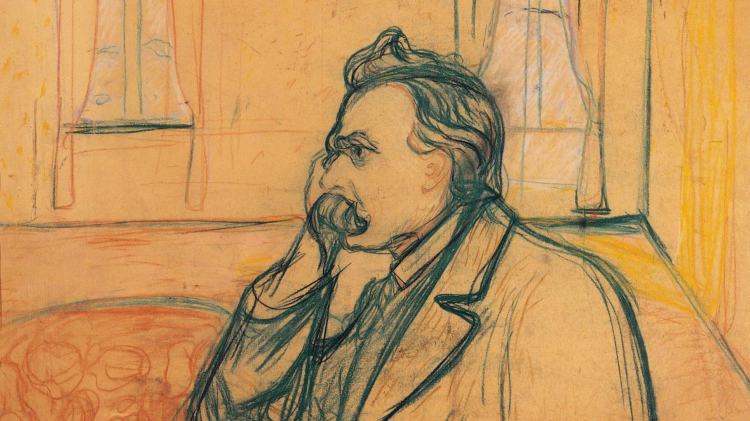Nietzsche on Bad Conscience

A portrait of Friedrich Nietzsche, drawn in 1905 by Edvard Munch.
Friedrich Nietzsche (5 October 1844 – 25 August 1900) was mostly known for his philosophy. From reading Nietzsche’s philosophy, though, one can sense a breadth of interests: language, history, poetry, culture.
Yet something consistent connects them: at great lengths he explores the psychology of existence. In particular, he was interested in our relationship with suffering.
We have a need to find suffering meaningful, Nietzsche thought, creating purpose in a continuous process of interpretation and reinterpretation. Thus spoke Nietzsche (hehe) in On the Genealogy of Morality, we tend to live under creditor-debtor relationships. There are higher creditors (God, society, etc.) and we, the debtors, favour the ‘foretaste’ of their higher status.
In these relationships we feel existential guilt (e.g. from ‘sins’, using goods and services, etc.) and embrace—even enjoy—the suffering (e.g. through punishment, discipline, tradition, sacrifice, sexual deprivation … ).
However, this psychological instinct has a way of turning itself inward: ‘the internalizing of man … what he later calls his soul.’ Nietzsche was not a fan: such ‘maltreatment’ belongs to ‘desperate prisoners’ filled with ‘longing’ and without bodily instinct!
In Nietzsche’s nihilism there are no absolute values; we inherit values from social institutions who enforce adherence for their own power. But when these values stop servicing our lives we should learn, as individuals, to renounce those collective values and create new ones which service us once more.
Nietzsche’s worldview continues to resonate with many people, especially the angsty. Go ahead and see: type ‘#nihilism’ into a social media platform’s search bar and see what comes up.
However, there is no doubt that Nietzsche constructed a life-affirming philosophy which sought to elicit individual spirit.
